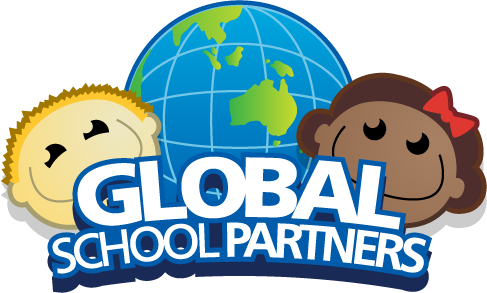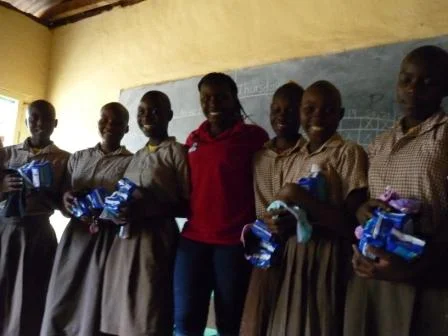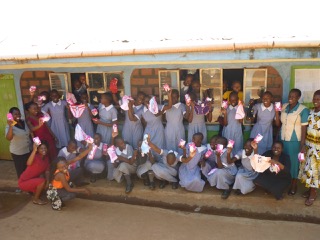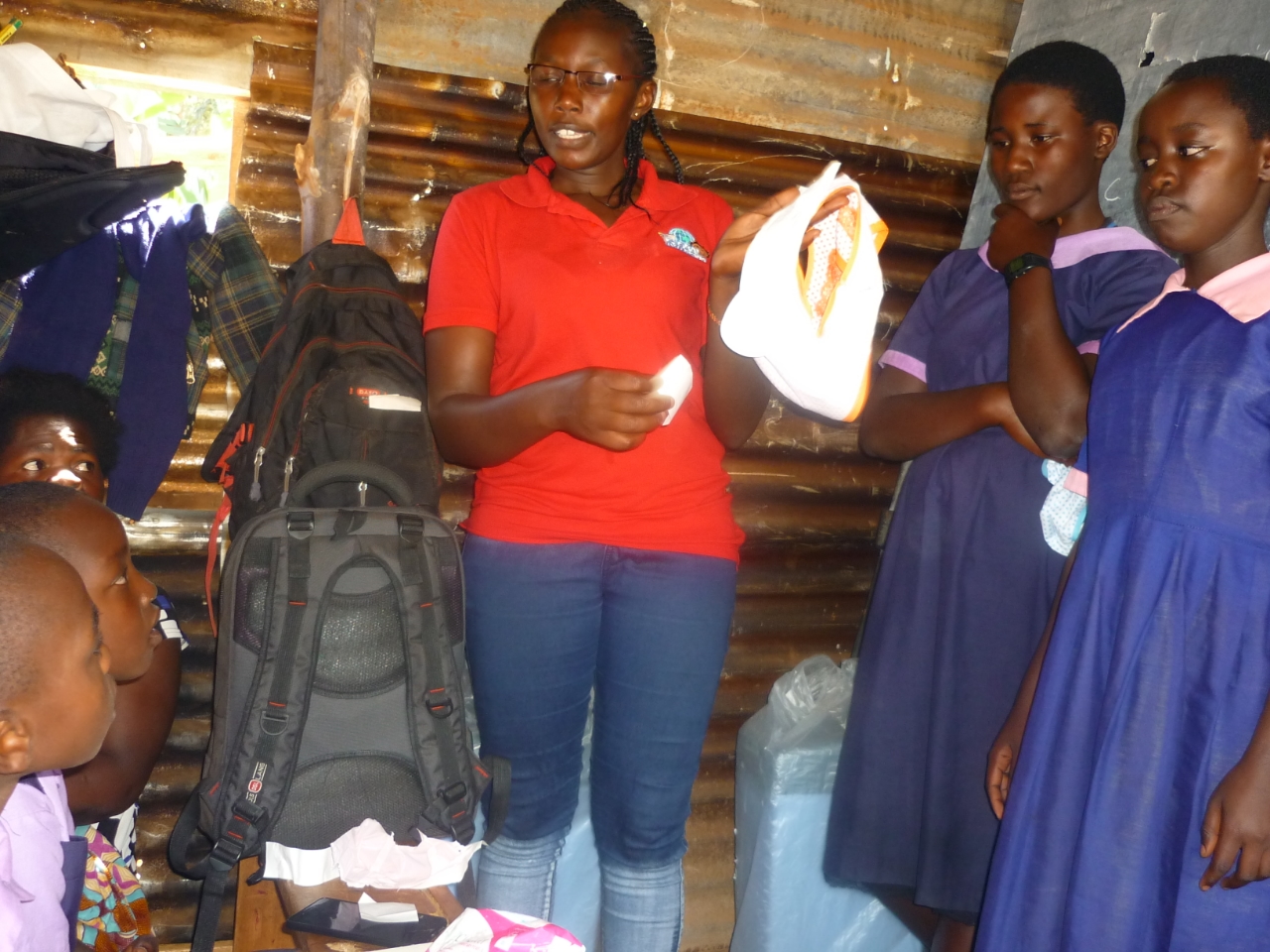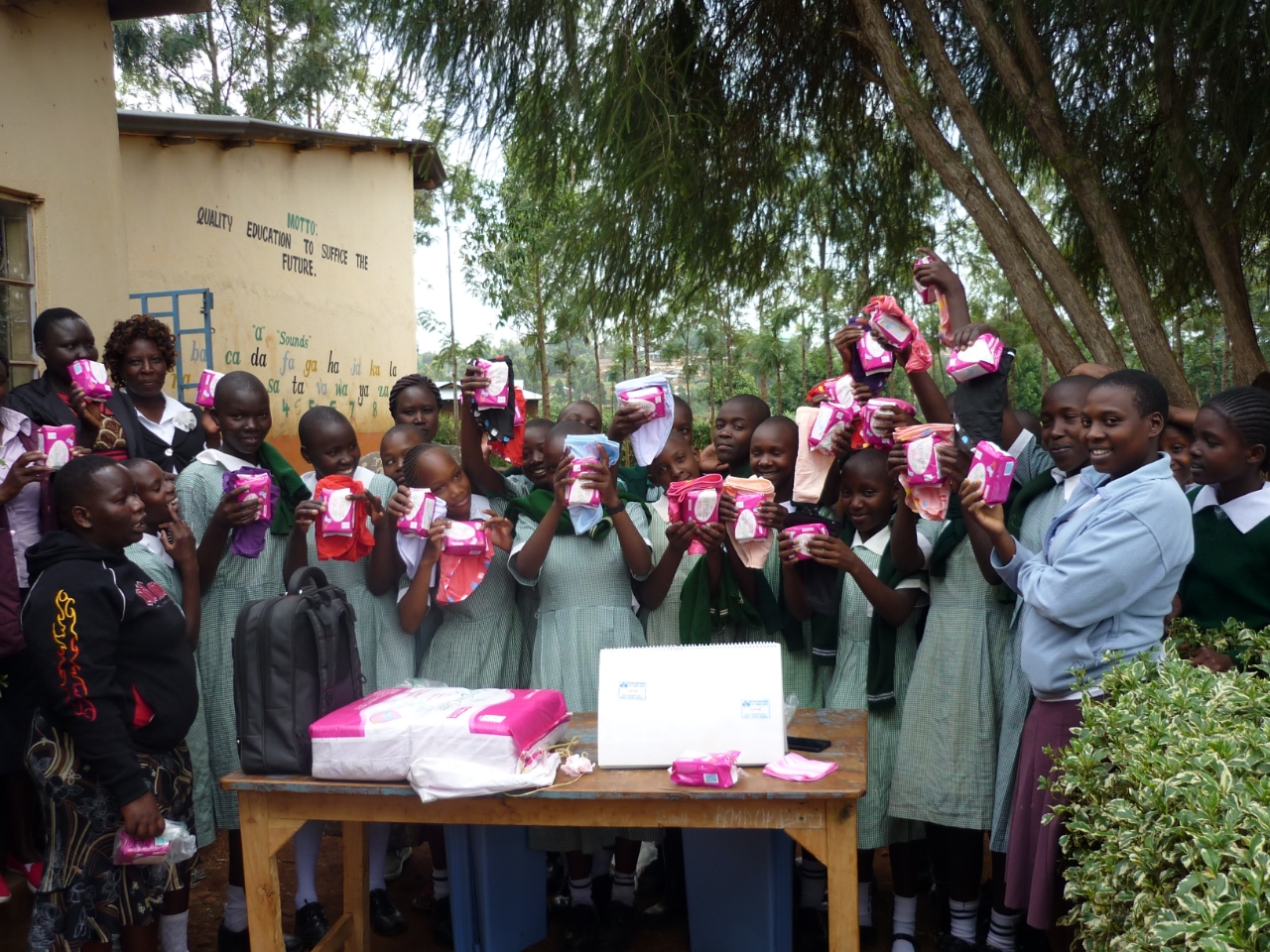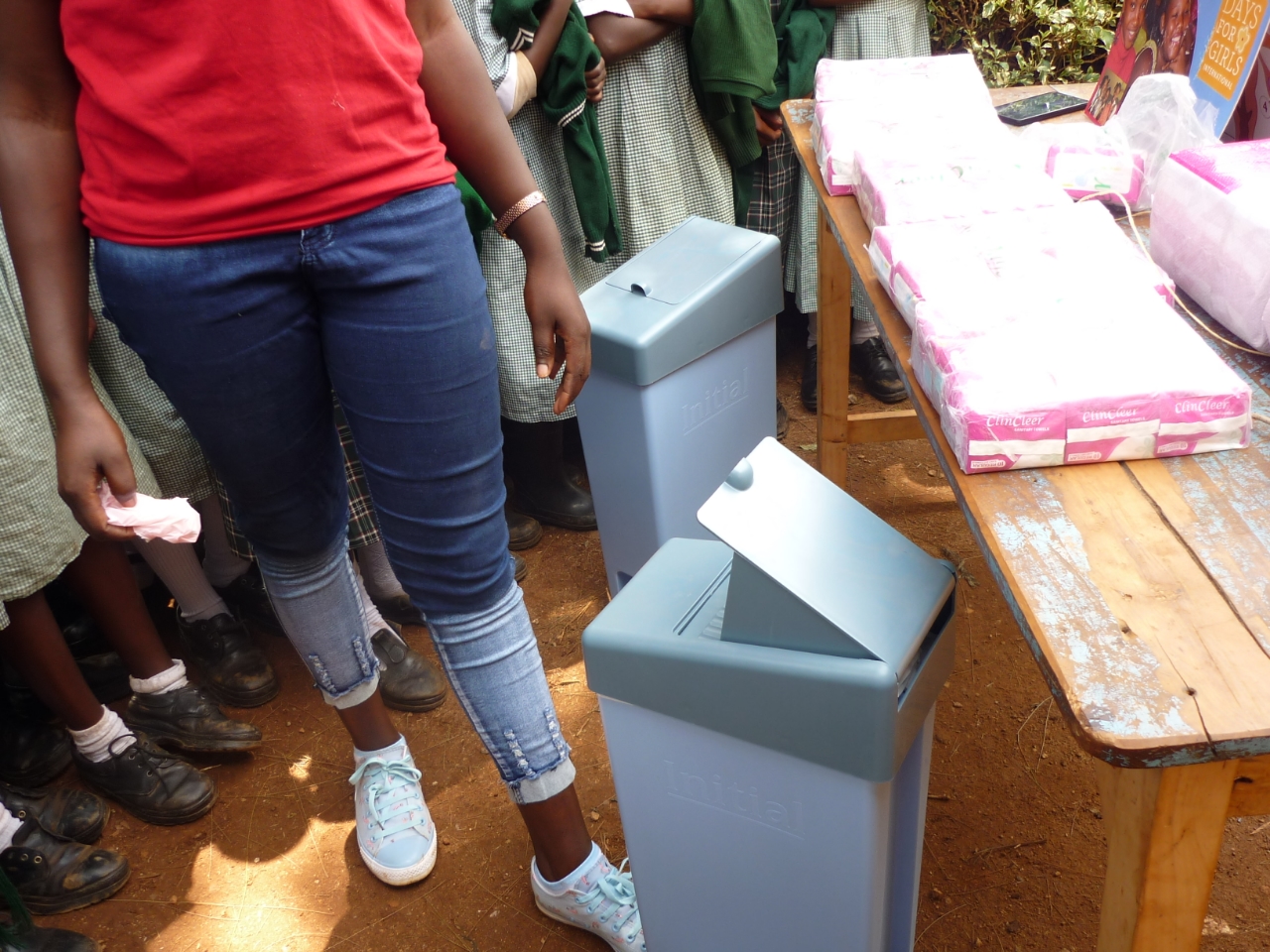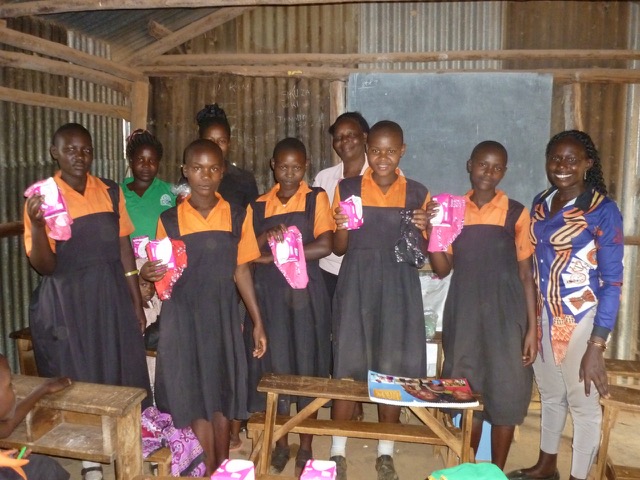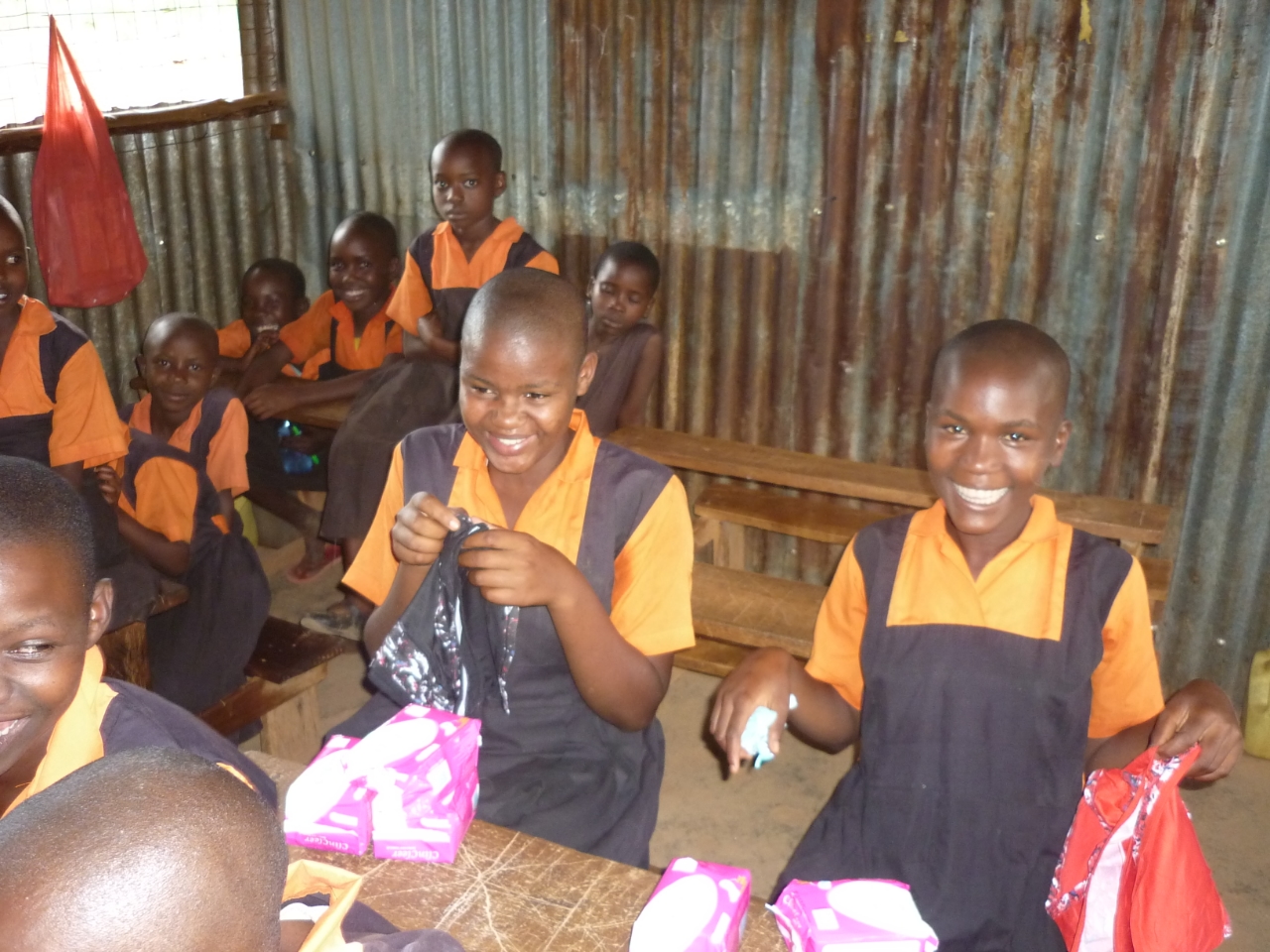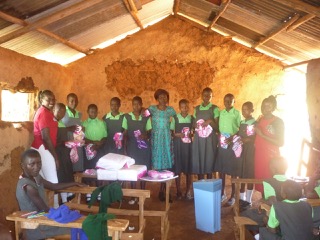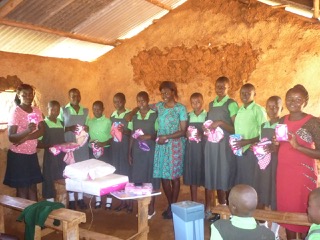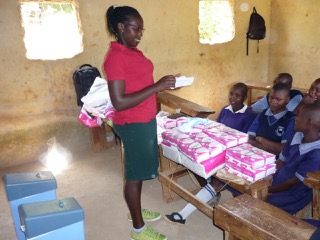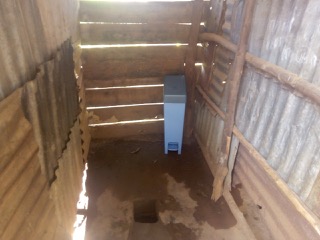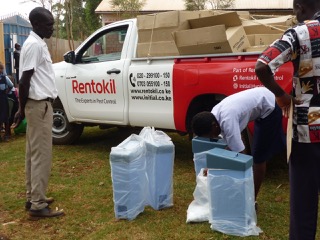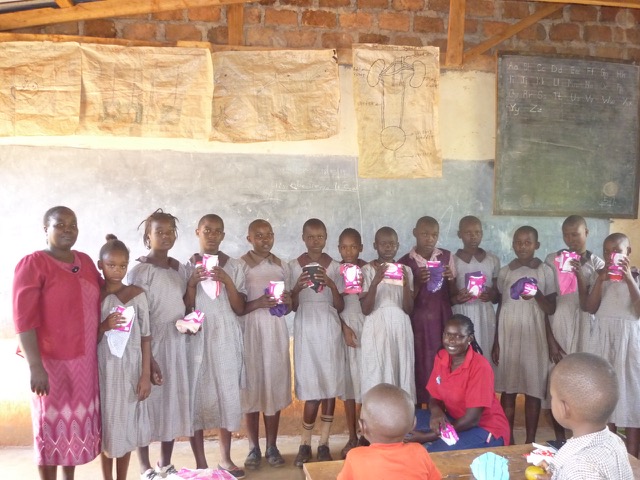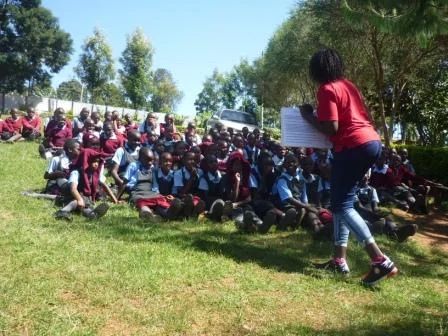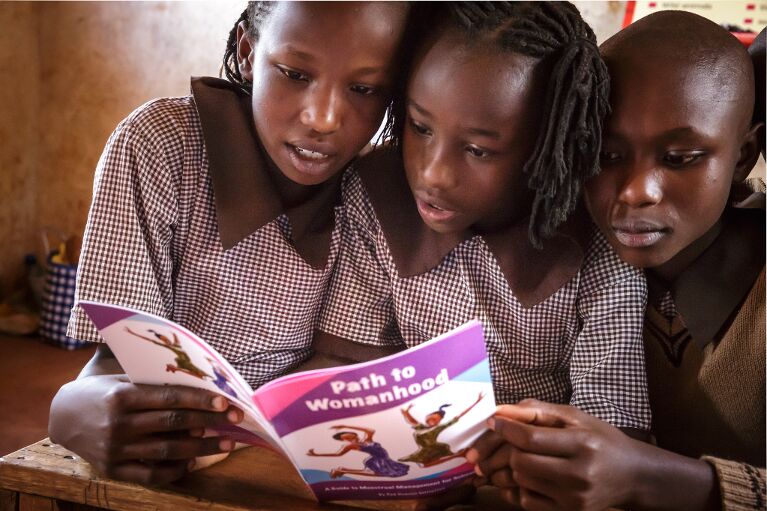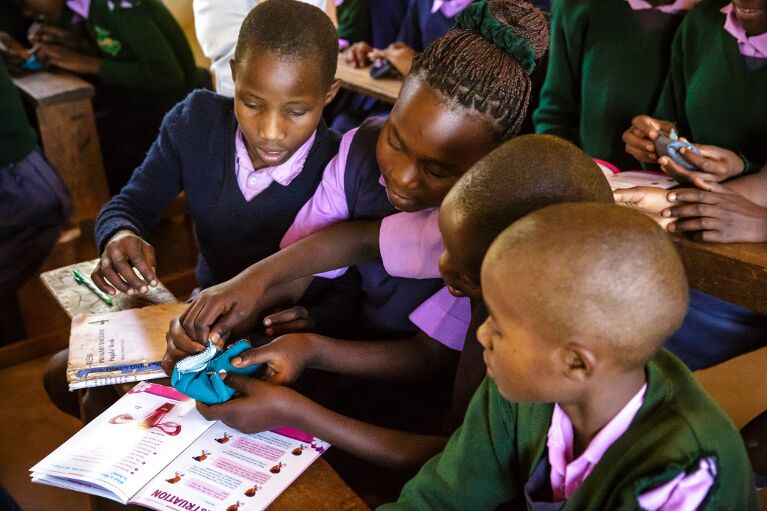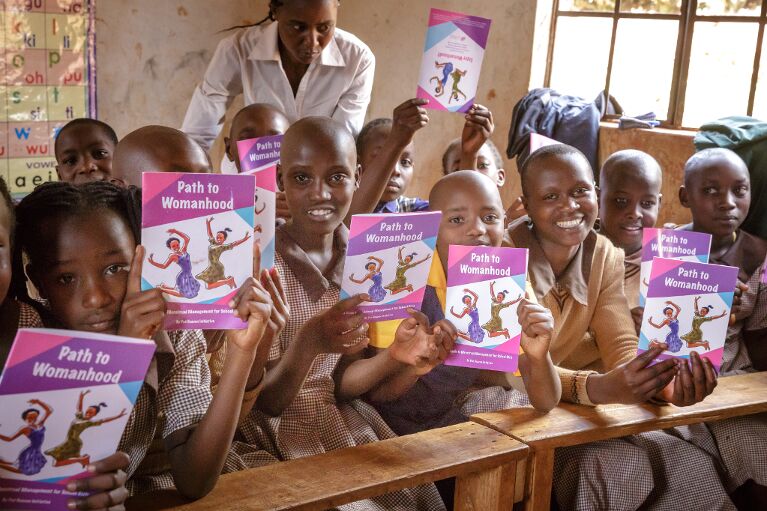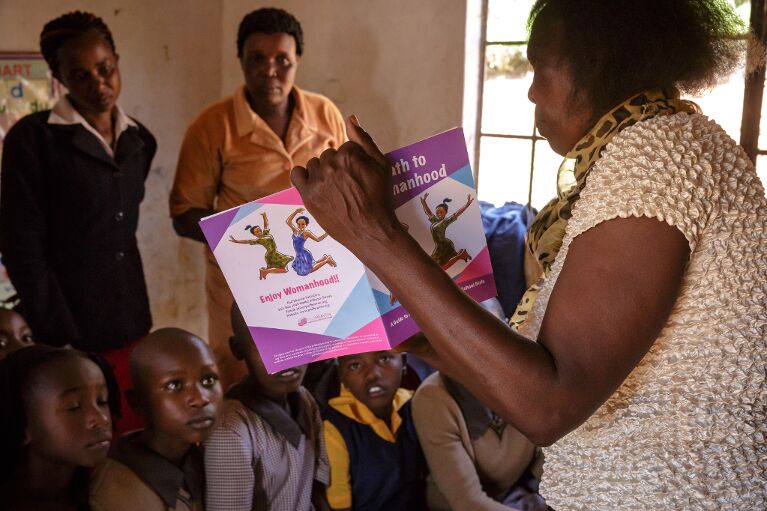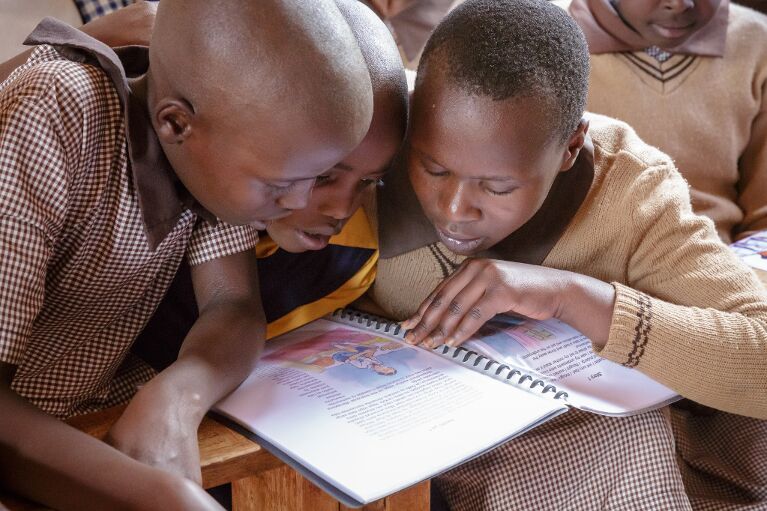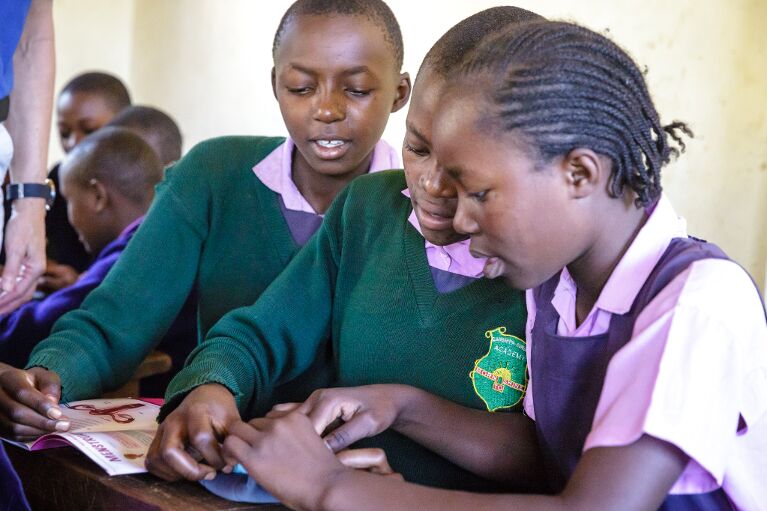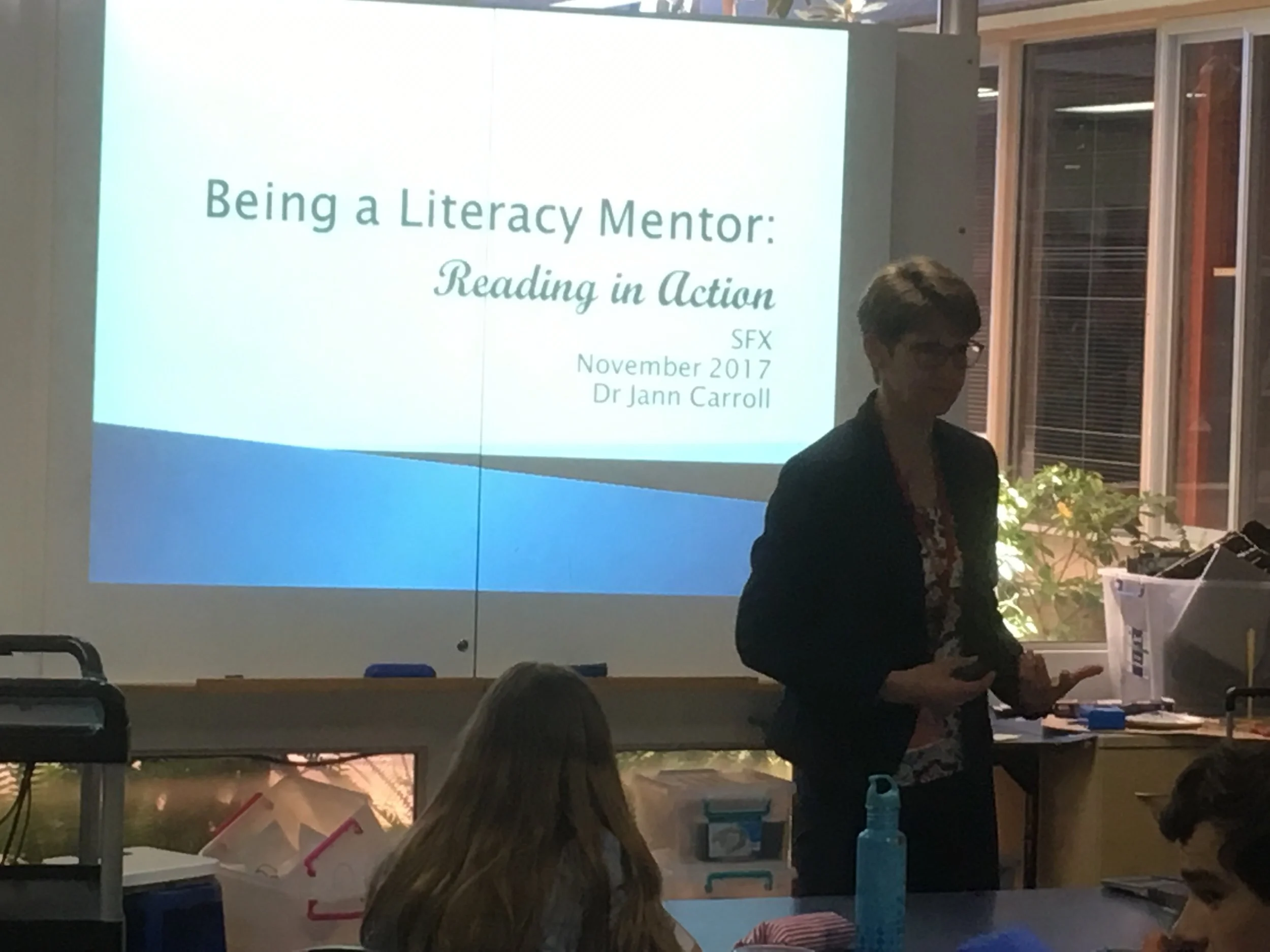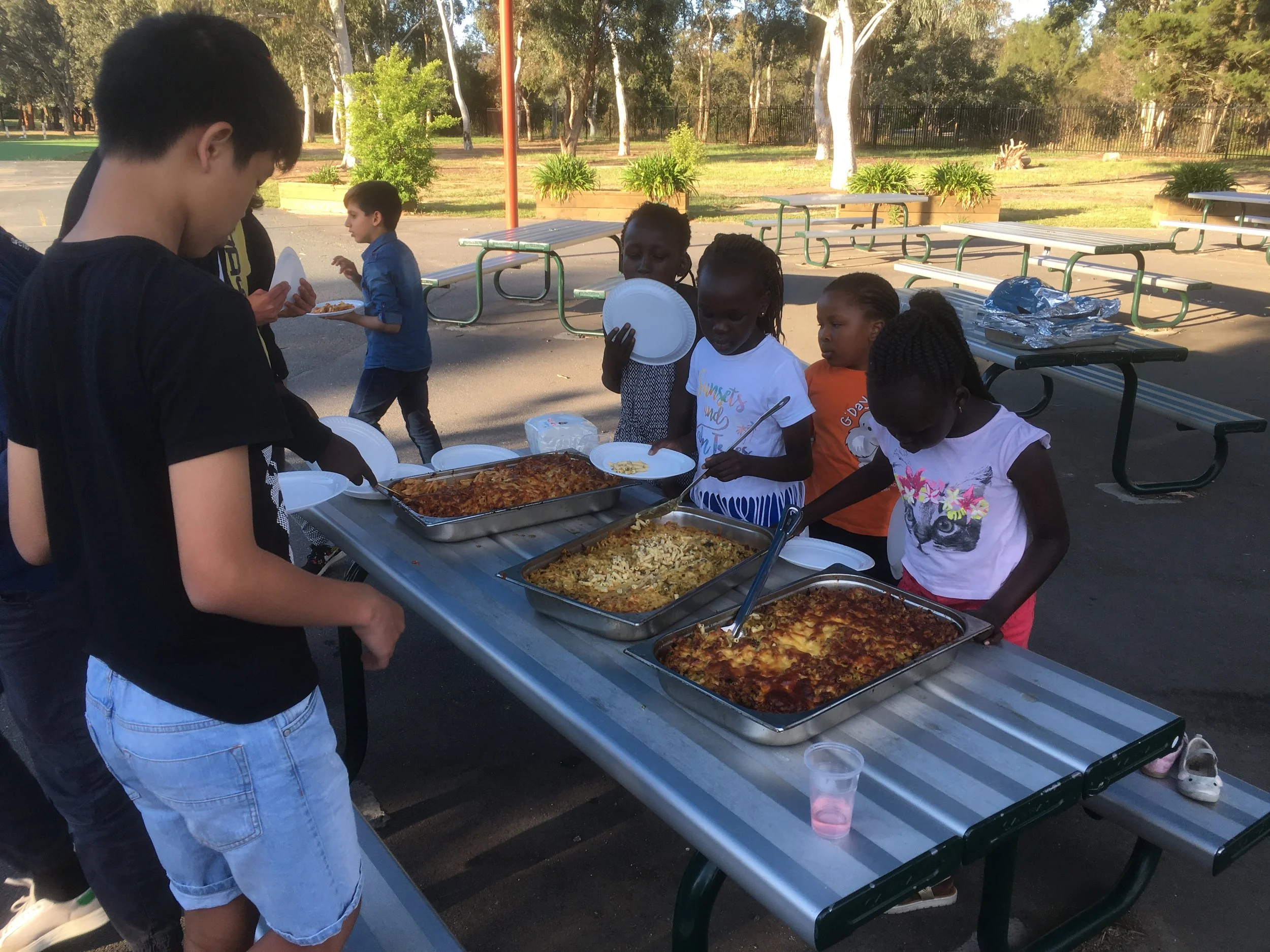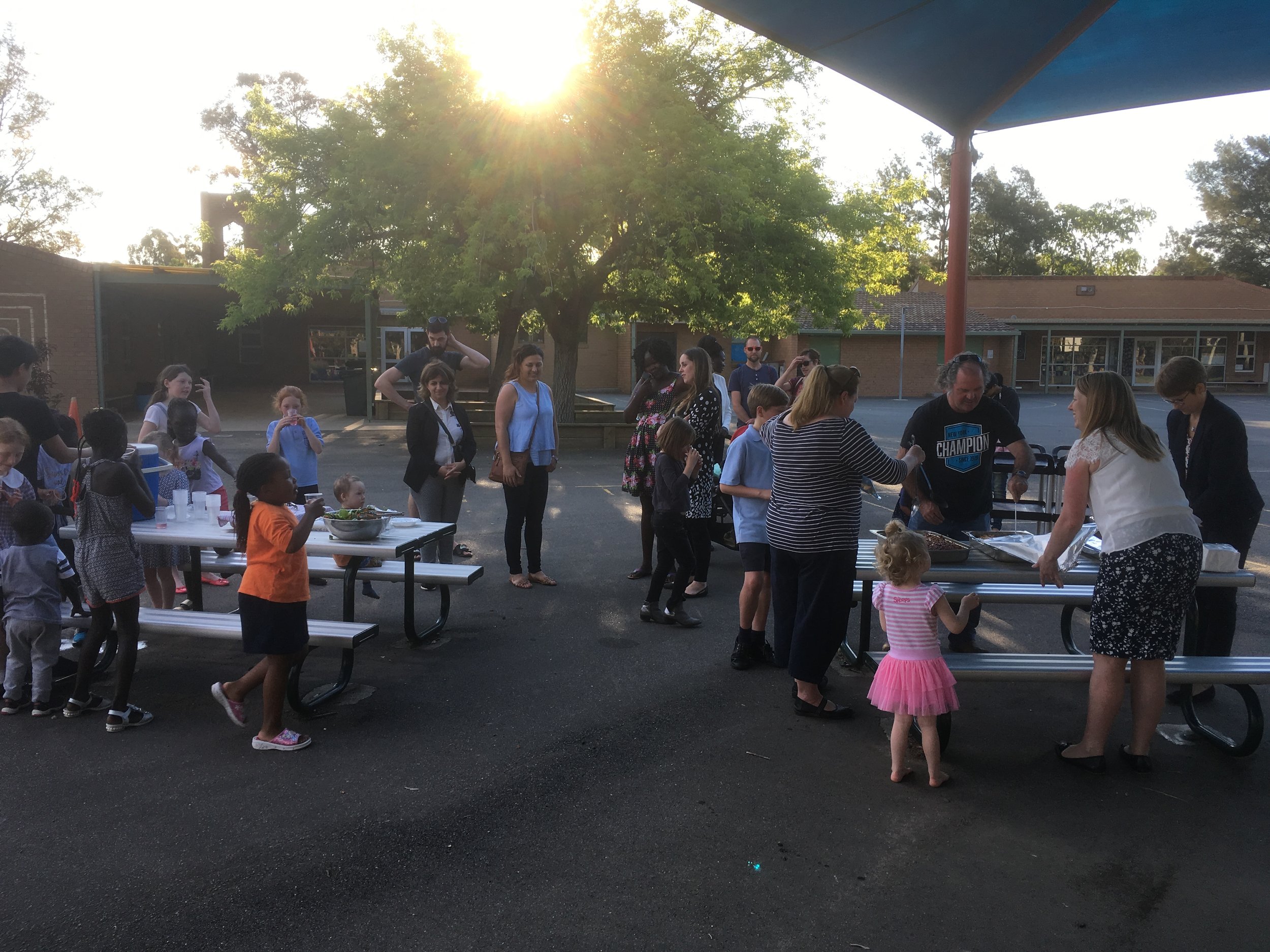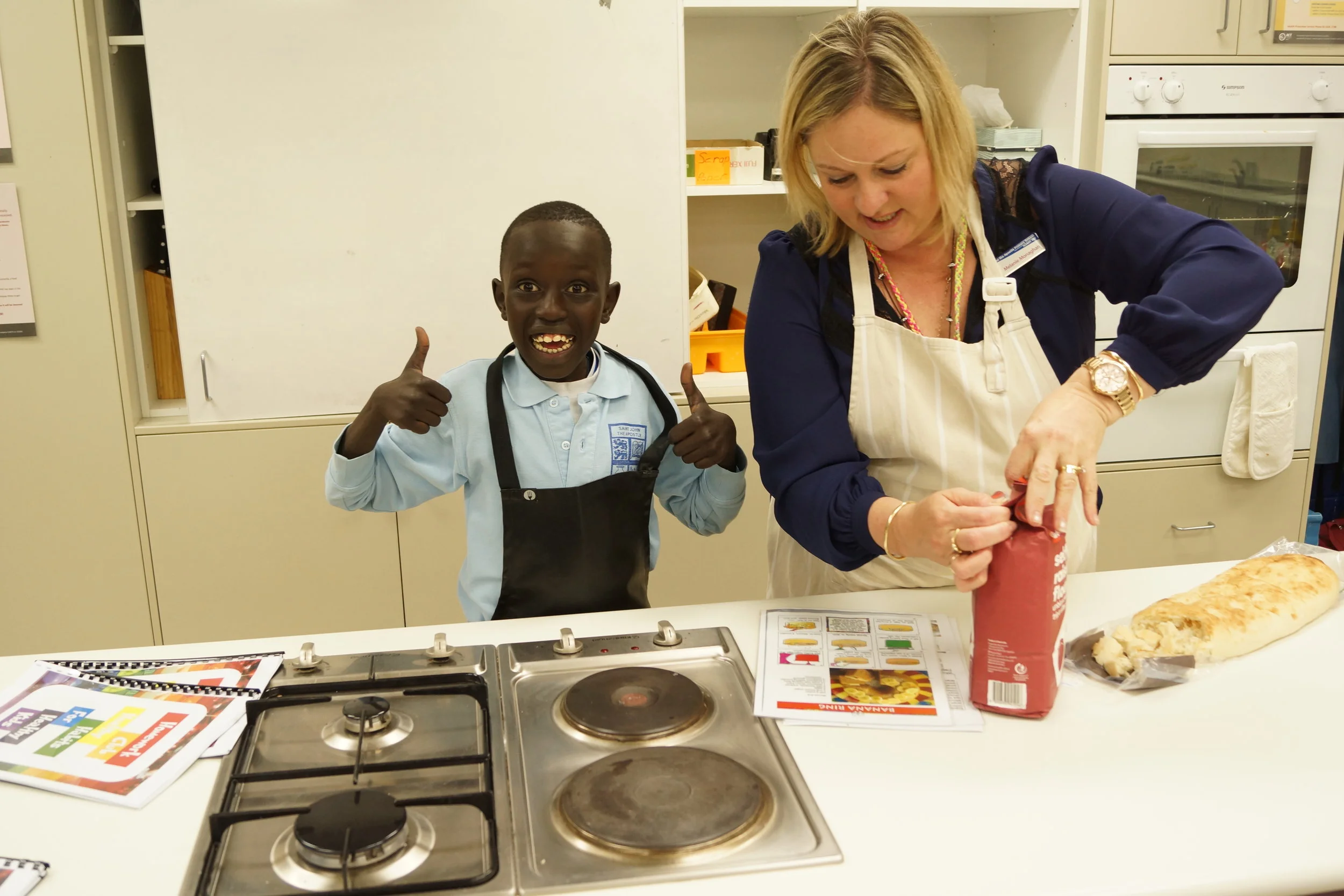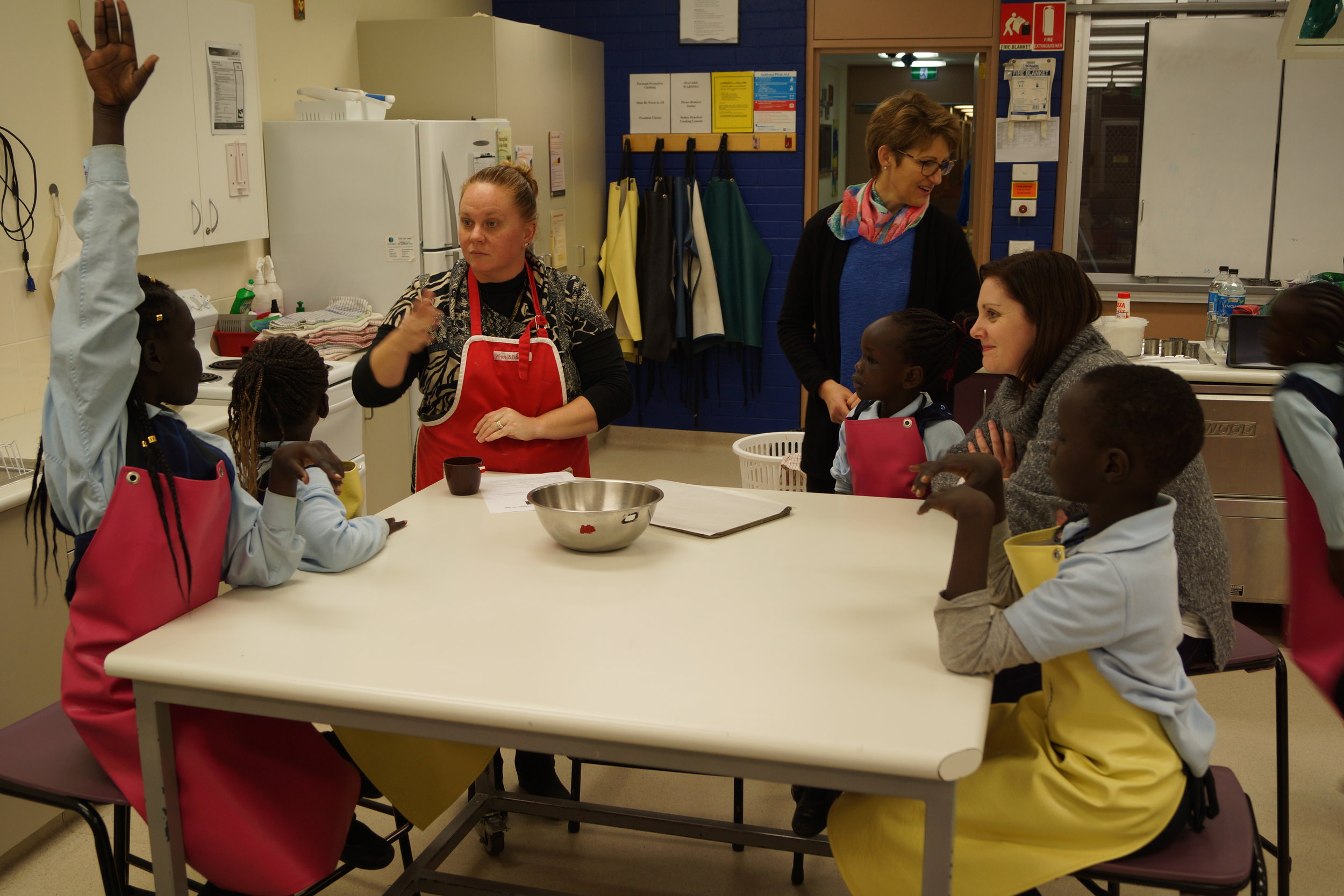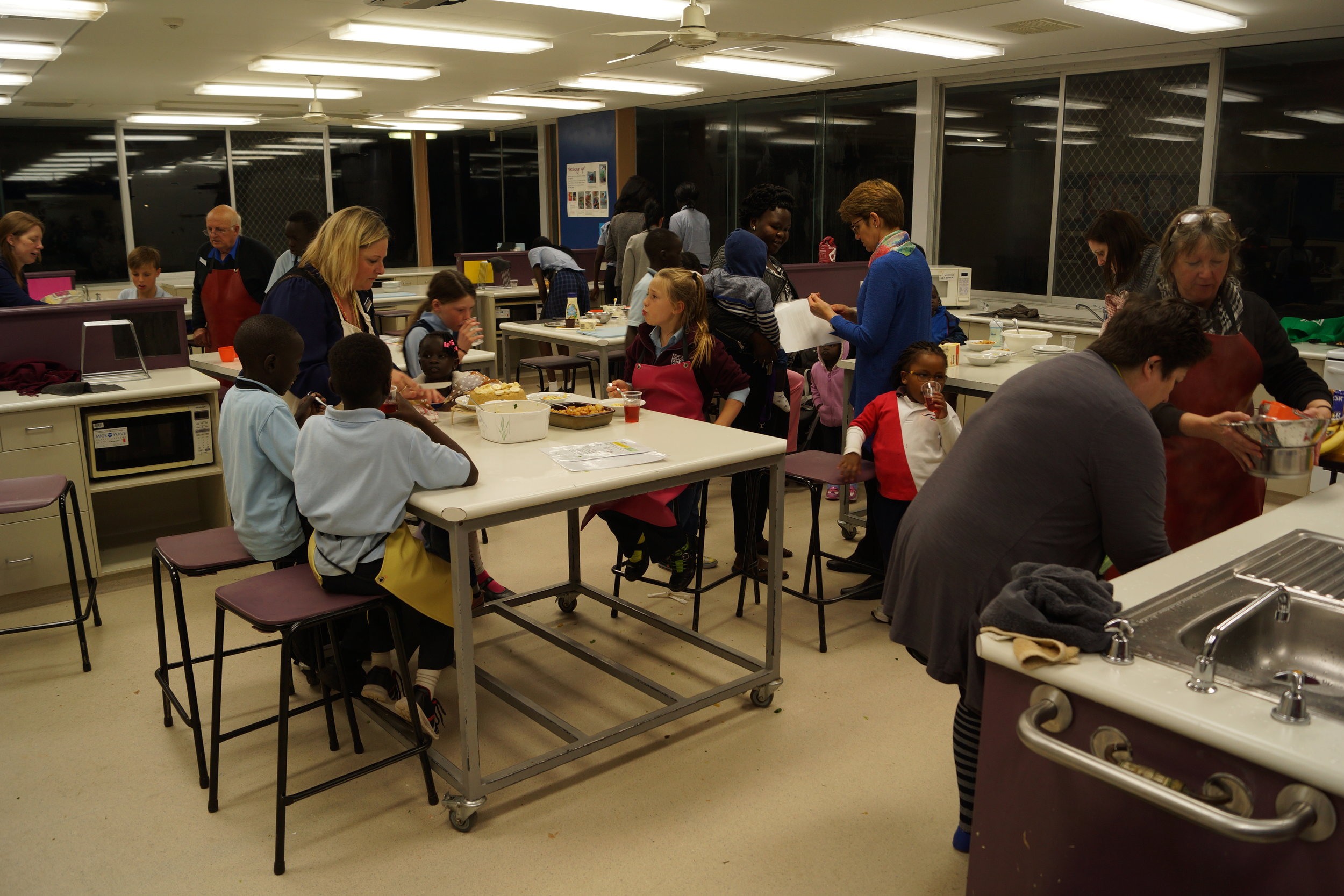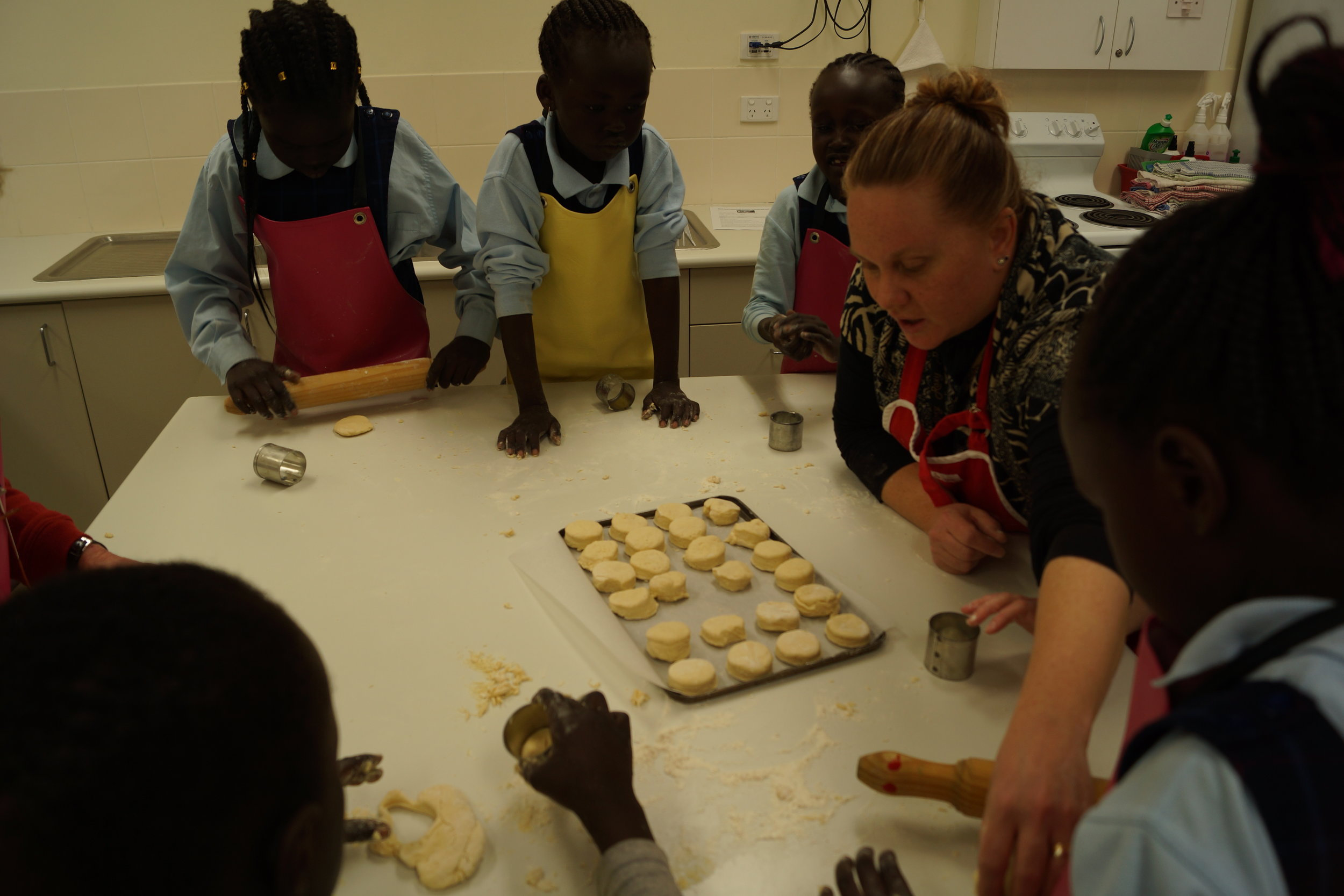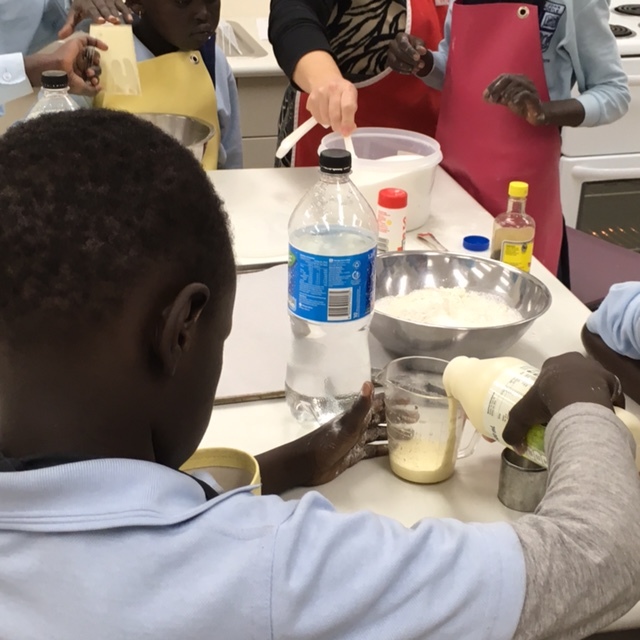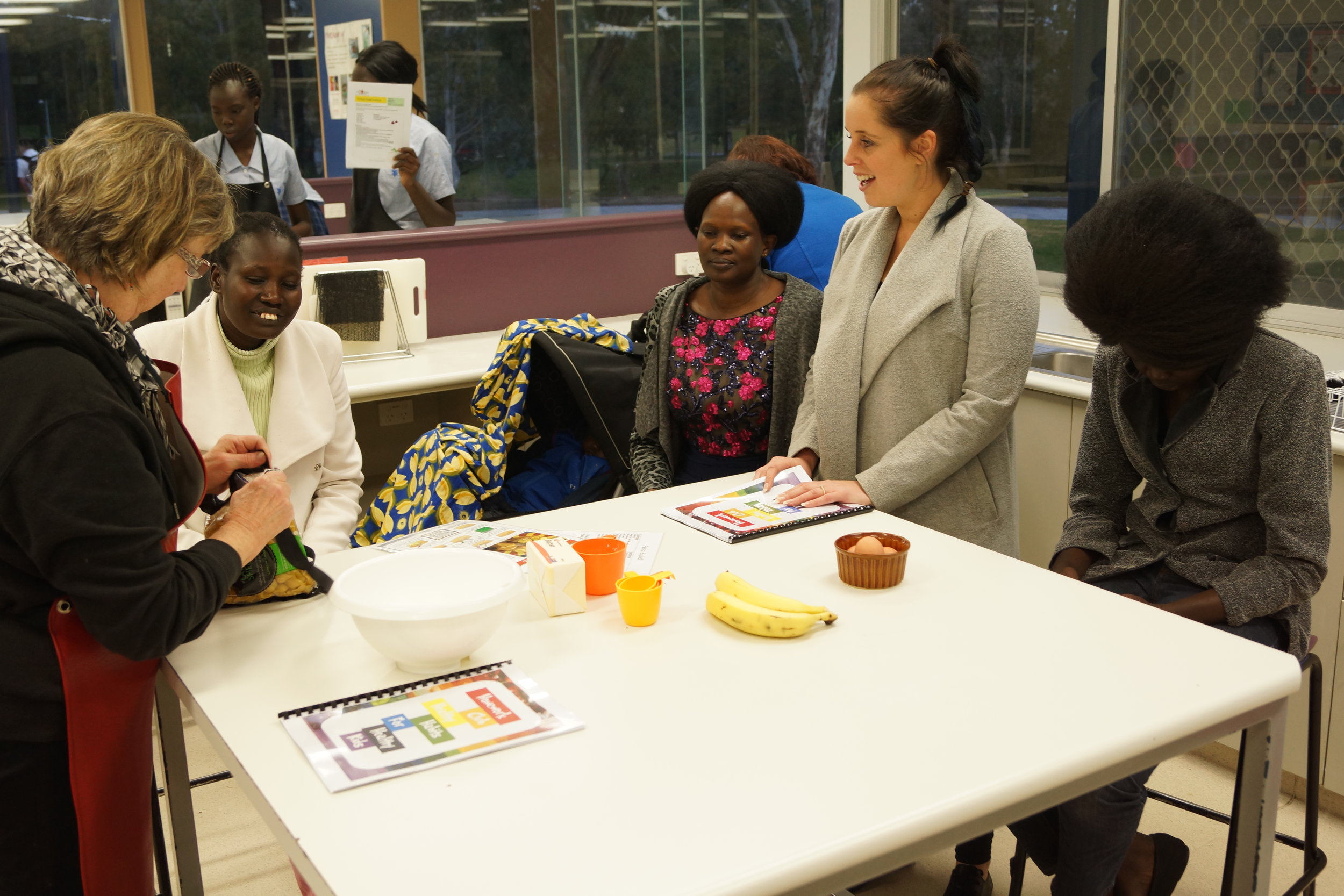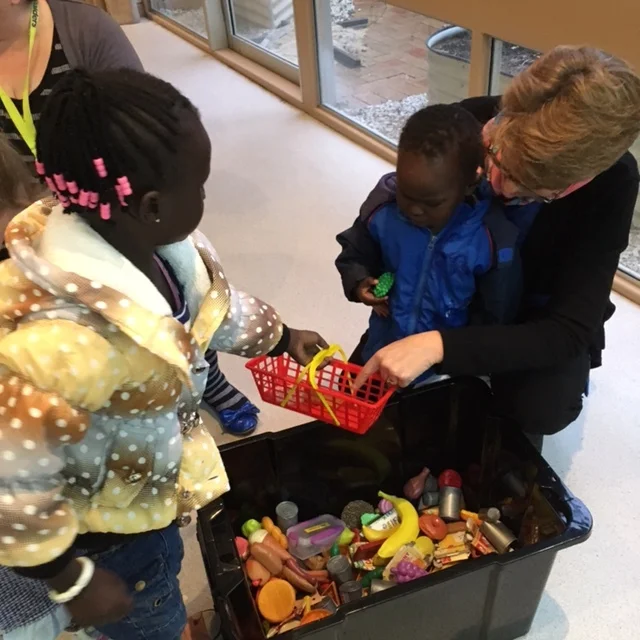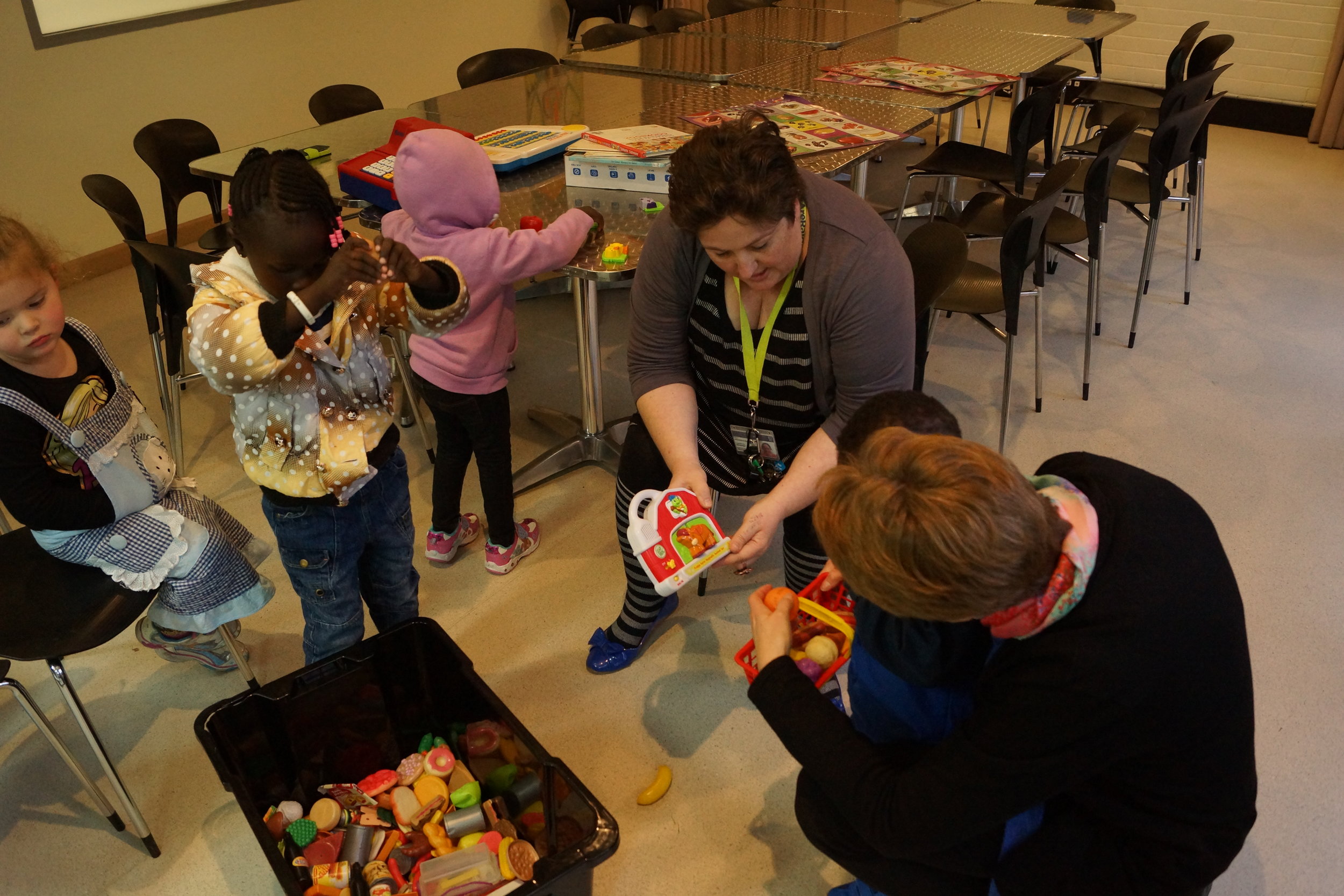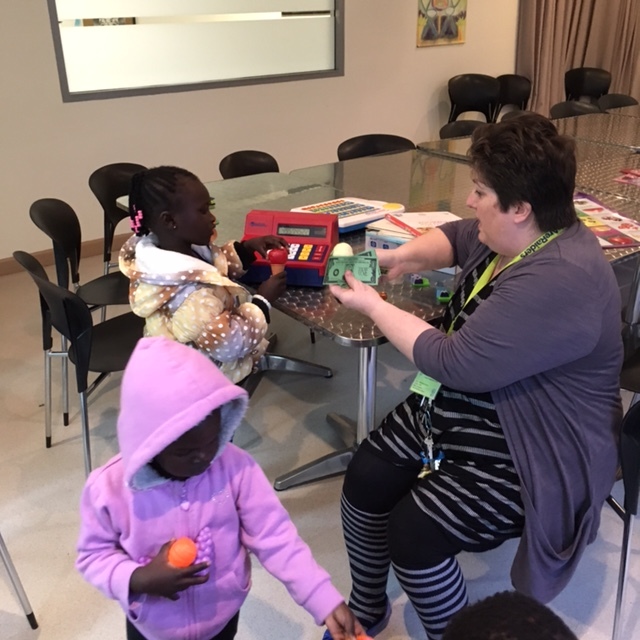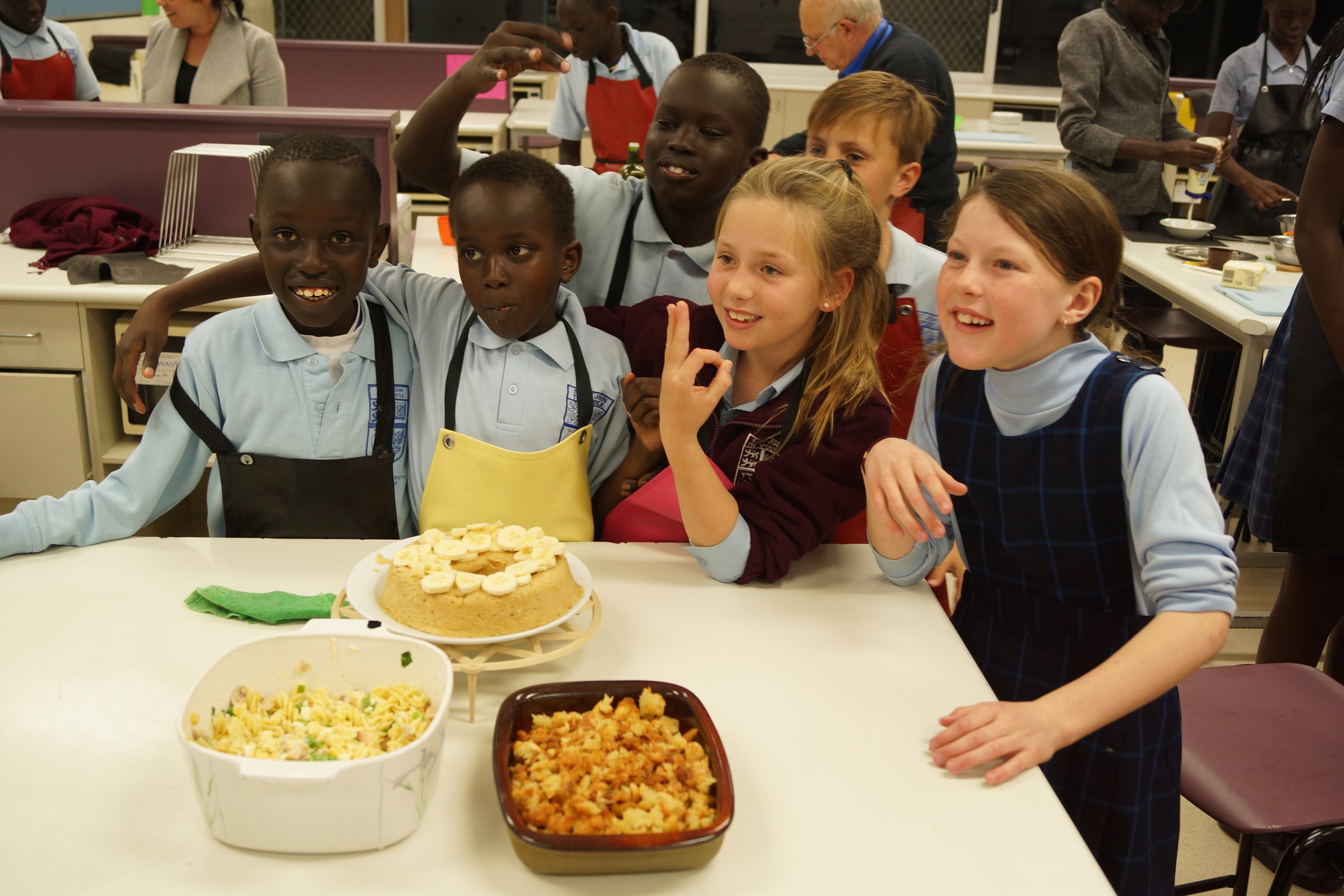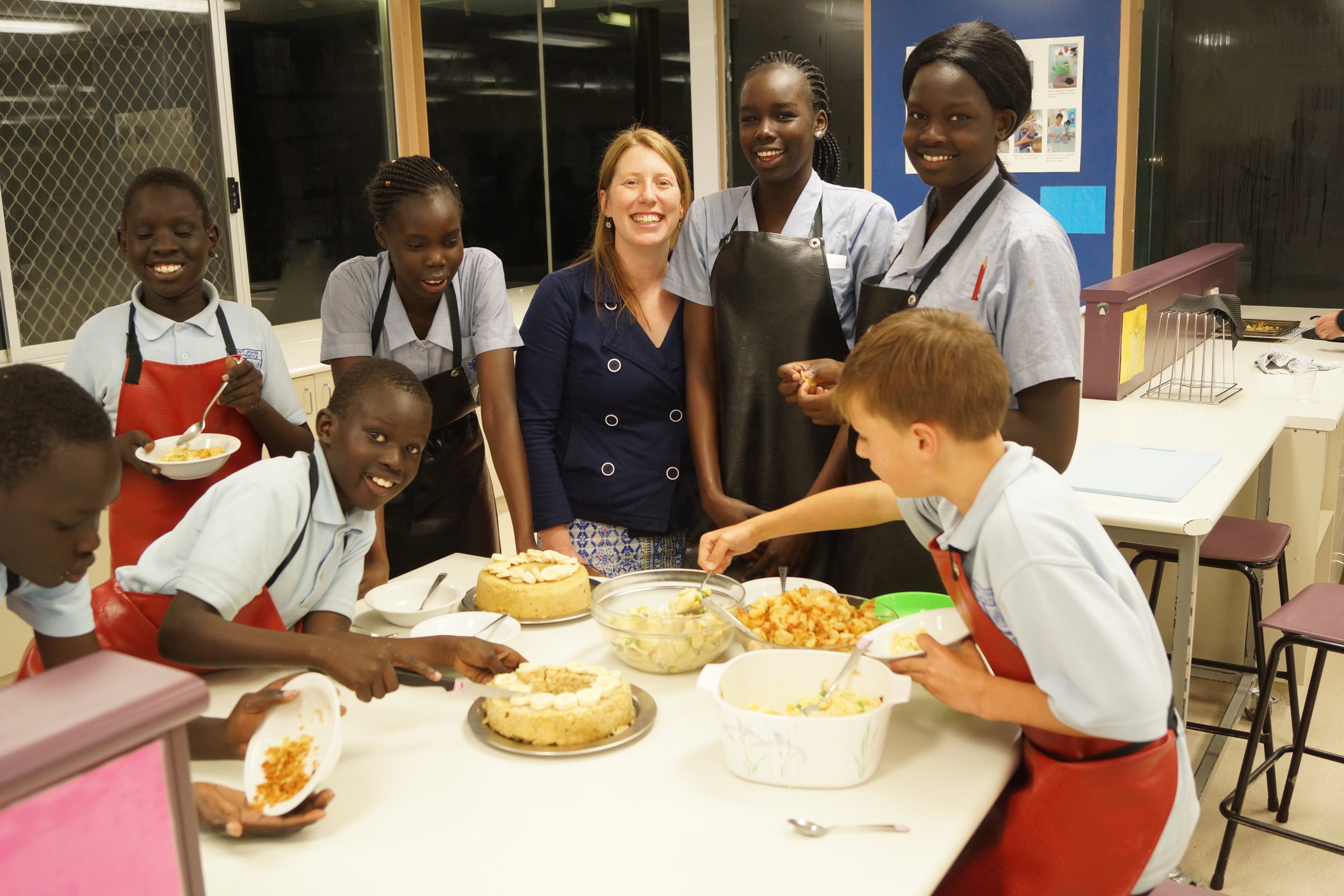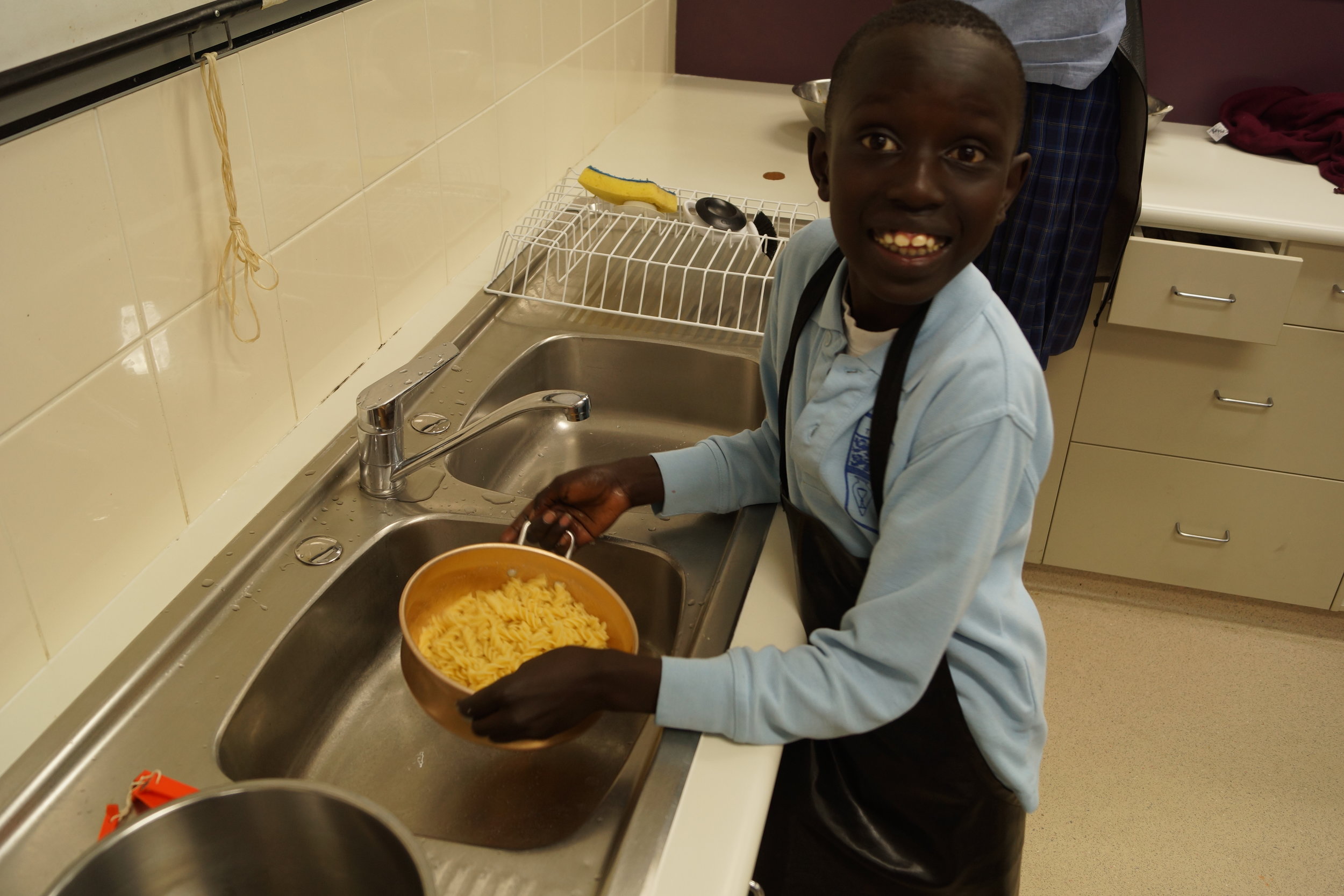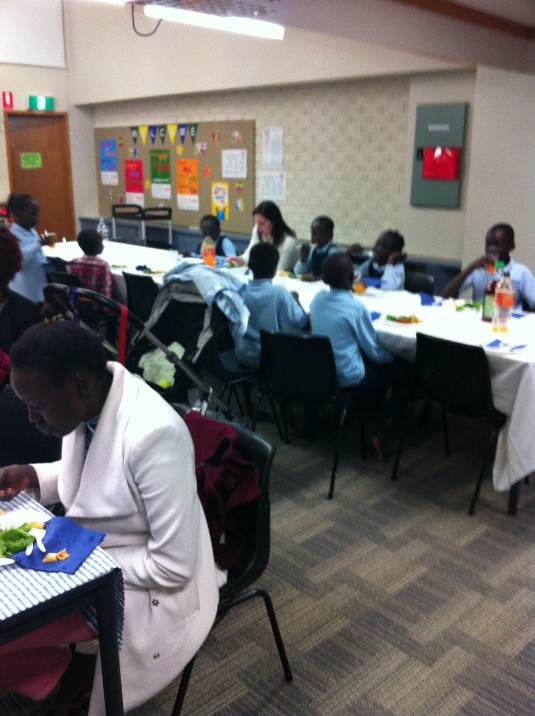This is Faith’s teacher, Billah explaining to her class that Global School Partners is providing underwear and pads through the Young Women’s Program. Faith goes to Obwari Academy and is 13 years old. Faith has had her period for 2 years which has meant that she has either missed school for one week a month as her family is unable to provide pads. Some girls in her school exchange sex for sanitary pads so that she can attend school. This practice has put these girls’ health both mentally and physically at great risk. They could have been infected by HIV, another STI or become pregnant. Thankfully GSP’s Young Women’s Program reduces this risk. Faith and her classmates have been excelling at school and much happier since the roll out of the Young Women’s Program.
Joy's Story
This is Joy and her classmates. Joy is 12 years old and goes to school at Tabaka Academy. She has had her period for just over a year. Until the recent roll out of Global School Partners’ Young Women’s Program, Joy would miss one full week of school a month due to her period. Joy and the other young women are too embarrassed to go to school while they have their period.
World Bank estimates that lack of proper sanitation products and facilities impacts at least 500 million women and girls globally, of those UNESCO estimates that 131 million girls are out of school of which 100 million are girls of high school age. The Young Women’s Program allows Joy and her fellow students to attend school every week each month, by providing underwear and pads for the girls to wear and sanitary bins to properly dispose of the pads. Joy is now able to receive an education that is not interrupted by her period. Since the implementation of the Young Women’s Program the academic results of Joy and the other young women in her class has improved.
Full roll out of Young Women's Program
In term 1 2019 the Young Women’s program was rolled out in all 26 GSP schools in Kenya.
GSP would like to thank the Rotary Club of Balwyn for supporting this program in 2019.
GSP Young Women’s Program aims to keep girls in school with support for those reaching puberty. Many of these girls miss a week of school every month. GSP supports the girls with an education program, mentoring and sanitary products, facilitated and delivered by GSP Program Officer in Kenya, Lonah Maiko.
“The program has made such a difference for the girls who now don’t miss school.
We have seen an 88% reduction in absenteeism and the girls have so much more confidence”
Lonah Maiko – GSP Program Officer.
The program launched in late 2018 and students were provided with washable/reusable sanitary pads, soap, underwear, education sessions and ongoing mentoring.
We saw an immediate decline in absenteeism due to menstruation, plus a noticeable lift in self confidence and maturity from the young women.
“The girls are very happy now and are no longer ashamed, they have much confidence and happiness”
Lonah Maiko, GSP Program Officer, Kenya
Kenya has had a dry summer, and this has meant a lack of water, this brought to light some issues with washing the reusable pads and some students suffered infections that we identified were caused by inadequately washed and dried reusable sanitary pads. In addition, reusable pads were only lasting about 6 months, mainly due to the vigorous washing techniques and this meant that the students needed a total of 12 pads per year each.
Discussions turned to the use of disposable sanitary pads and our concerns revolved around the hygienic and environmentally sustainable method of disposal of pads. The use of incinerators was investigated but rejected as expensive and the temperatures needed to prevent the release of dangerous gases was found to be unachievable in many locations. GSP have negotiated with Rentokil-Initial to place sanitary bins into all GSP schools, even the rural and remote locations and to service them monthly. To our knowledge, this is new for Rentokil-Initial as in Kenya they normally only operate in the main cities.
The cost of sanitary pads that are listed as certified ‘acceptable’ in Kenya is low.
Consequently, the program is now operating in all our schools using disposable sanitary pads and Rentokil-Initial disposal bins at an overall cost that is lower than the previously budgeted program with washable/reusable pads.
Young Women's Program roll out 2018
With the success of the trial (see post below) we are determined to roll out this program to all young women in all our schools.
We know it will:
- Decrease their absenteeism from school
- Increase their confidence
- Enable them to understand this natural process that is occuring in theor bodies
What do we need? We have an excellent partner in Pad Heaven in Nairobi, we have great support from our Well Being Officer Lonah and we have fantastic teachers in each school who will be great mentors.
We need money to buy pads, education booklets, panties, soap - on a recurring basis.
Join us for our Trivia Challenge or Donate now
Young Women's Program trial
We realised some years ago that most of the young women attending our schools in Kenya miss a week of school every month, once they reach puberty. When their menstrual period occurs the young women have no appropriate resources to assist them, such as sanitary pads. This means that for many it is a time of the month when they cannot attend school and may not even be allowed in their own homes.
Missing a week of school a month means having an approximately 25% gap in your learning and this has obvious negative effects on educational outcomes for these girls.
In January 2017 we connected with Florence Kamaitha who is an amazing Kenyan woman who founded Pad Heaven with the aim of 'keeping girls in class one pad at a time.' We selected 3 GSP schools and Safehaven Orphanage to be our trial participants. We were trained in Florence's education program, purchased a pack of 6 pads for each girl and set off for our schools. There our Well Being Officer Lonah educated the young women, arranged for a mature female teacher in each place to act as a mentor and we provided the girls with their pack of reusable, washable sanitary pads, panties and soap.
We then tracked the progress of these girls each month through Lonah's visit to their school and reports from the mentors. What we found:
- School absenteeism dropped by 88% for the young women in the program
- The pads lasted 6 months rather than the expected 12 months, mainly because the girls had no soap to wash them with and had to resort to scrubbing with stones and sticks
- The young women became far more self assured and confident as they realised that menstruation is natural part of their lives and does not have to mean exclusion
Where to next.....
FACES - launch
Following the successful Florey Family Literacy trial in 2016 we have now launched FACES:
Families in ACT building Communities through Education and Support.
Based on FFL this program is designed to help new Australian families, particularly with refugee back grounds, to integrate into school life and the community.
We have found that many former refugees families are experiencing difficulties engaging with the school community. These difficulties relate to a lack of understanding of and integration into, the school community and the educational challenges facing the children and parents, because of their own lack of formal education and the violence and upheaval they have endured in refugee camps.
FACES supports a Parent Buddy system, mentoring of students and an experiential showcase of conditions and way of life in a refugee camp. FACES engages both the new Australian families and existing school families and provides for a greater understanding from both sides.
Dr Jann Carroll provides literacy mentor training to senior school mentors
The Parent Buddy program was launched with a cultural awareness session for the Australian Buddies and then a shared meal with all families.
Everyone enjoyed the food and the beautiful evening
Global School Partners would like to acknowledge and thank Capital Chemist for their generous support of the FACES program.
FFL – Literacy and the community
Unfortunately, two of our families succumbed to the dreaded gastro and flu in week 5 so our numbers were somewhat depleted. This meant we had a smaller group and it was focussed on the K-2 girls and mums. Leilah, Pat and Bek worked with the girls on oral language using language games whilst Jann read with the mums. We practiced strategies such as echo reading and paired reading to maintain meaning to begin with, then the mum’s had free choice reading which Jann supported where necessary. We used rhyming books such as Room on the Broom by Julia Donaldson and some Dr Seuss classics. Elizabeth really enjoyed There’s a wocket in my pocket!
We had noticed that there was a need to revise simple safety in relation to walking and/or cycling to school, car safety and cyber safety amongst the South Sudanese families. So we invited Greg Ayton, a member of the local police force to come and share with both the children and the parents. Greg was easy to understand, engaged the audience and shared his message very well. We all learnt something new! The children enjoyed the Kenny Koala resources Greg provided too.
This project would not have been possible without the faithful support of our volunteers and to celebrate we had a sausage sizzle in true Aussie fashion to celebrate the end of term. The sun could have provided more warmth, however the sausages and sauce provided sustenance and a warm sense of community that has developed over the last 6 weeks of this project. Our thanks go to Pat, Bek, Kristy, Leilah, Jack, Anthony, Angela and Matthew for their unwavering support and to a very special boy called Ekol who cheerfully helped and learnt alongside us.
Following our barbeque we moved into the warmth of the library and whilst Bek provided support with parent-teacher and swimming carnival forms, Elizabeth was keen to build on the skills she had already received and we read some more. We also gave each family a bag of books to encourage them to continue reading with the children over the school holidays. Kirsty and Leilah showed the children how to make their own books out of paper and much rich conversation was had around the table. We parted having made new friends, found new skills and deepened the sense of belonging. What a wonderful journey this has been. The last word goes to Elizabeth, mum of four who said,
“ This has made me want to learn more and understand the meaning of words. I want to learn more and read more as English is my second language. I like reading!”
FFL – Supporting literacy at home
Weeks 3 and 4: Supporting literacy skills at home
Our focus for weeks 3 and 4 of our pilot program have been about building literacy skills for our families to use at home. We decided to divide the various age groups to cater for their differing needs. For our littlest ones we organised a librarian to come and do a “wiggle and giggle” session focussing on oral language development through song and rhyme. This was followed by a story book or two. Leilah and Pat wiggled and giggled along and ensured even the littlest members had a good time.
Whilst the little ones where practising their rhyming, Bek and Greg worked with the middle age group to create a movie trailer of their favourite book using the ipads. The boys were engaged and loved seeing their interpretation of their stories spring to life. Once they had learnt how to use the app they began publishing their own stories on the ipads. Greg and Bek supported the boys with expanding vocabulary, punctuation for impact and ensuring sentence structure was effective in conveying their message. The boys were engaged and honed their skills which will transfer to the classroom.
Angela introduced the concept of a book orientation to the parents and we shared the wonderful story of a young girl’s journey as an immigrant to Australia through the book, My Two Blankets by Irena Kobald and Freya Blackwood (2015). We spoke about the importance of introducing a book and drawing on background knowledge to ensure meaning is made whilst reading and practiced this on each other. Once we all had a good understanding of the story we used multiple copies, which meant we all had our own copy, to take turns reading and supporting each other’s understanding. The topic of the book was culturally relevant and meaningful to the parents who participated. We also read the The Colour of Home by Mary Hoffman and Karin Littlewood, which carries a similar theme.
Each evening concludes with a meal and this time chicken rolls and salad was enjoyed by all. We even finished the night with a dance – see the video, click ‘Watch on Facebook’ below.
FFL – Literacy in the kitchen – week 2
This week:
This week our theme was Literacy in the Kitchen and what fun we had! With the generous support of teachers from St Francis Xavier and our wonderful volunteers, we had our own version of Masterchef. On the menu was a vegetable pasta salad, croutons and banana bread, which the parents and older children worked in teams to prepare. We had lots of rich conversation around the importance of hygiene in the kitchen, names of implements and cooking methods whilst understanding how to follow a recipe.
Whilst the older set was whipping up a delicious dinner and learning the names of new foods, our Kindy, year 1 and year 2 students were baking up a storm and learning the finer art of not over mixing scones, whipping cream and that we don’t touch the hot oven without adult supervision. Collecting the correct ingredients from the cupboard, measuring accurately and following a recipe added to the children’s practical literacy and numeracy skills. Many of the students had never had the opportunity to bake and so the level of excitement was very high!
Angela and Jann entertained the littlest ones (13 months to 5 years) with picture books about food which, together with the delicious smells wafting from the kitchens, made us anticipate dinner even more. We set up a ‘shop’ with a vast array of plastic food stuffs, little shopping baskets and a till with pretend money with which the children actively engaged. The names of different fruit and vegetables were a focus as we tried to send a healthy eating message as well.
At last we got the call to come and eat! We all sat around and sampled the fruits of our labour with many a sceptic being turned into a fan of foods they had not tasted before. The evening was full of fun, fellowship and conversations around food, which made the vast quantities of kitchen equipment to be washed up all worth it!
Next week we are looking at supporting your child’s reading at home.
Australian initiative – Florey Family Literacy Program
Florey Family Literacy Project
In partnership with teachers and volunteers we have begun an initiative, the Florey Family Literacy project, that aims to support families in literacy and language development from South Sudan who have fled their war torn country. One of our partner schools, St John the Apostle in Florey, ACT, together with St Francis Xavier High School, has a large population of African families who have taken refuge in Canberra. A very effective homework club is already operating which provides academic support to these students on a weekly basis. However, a need was identified for the parents of the children who attend homework club, who also require English language skills and basic numeracy.
So in response we are running a six week pilot program for 5 South Sudanese families directly after homework club with the following aims:
- To further develop the literacy skills of the school aged children as well as siblings through supportive, engaging literacy activities
- To assist parents with strategies to support their child’s literacy and to develop and practice their own literacy and numeracy
- To connect parents to each other and to the school community
- To build cultural awareness in the wider community
We ran our first session on Monday 15th August which 3 families attended, the youngest child was 18 months – it’s never too early to read to a child! As this was the first week, our aim was to get to know each other, break down the barriers and share a meal together. After a speaking and listening getting-to-know-you ice breaker, what fun we had learning a couple of Aussie bush dances with the wonderful Jan Simpson. Jan patiently delivered the instructions, demonstrated expertly and then led us through as we listened, laughed and danced together. The time flew by and we ended with a shared meal, rich conversations and the promise to meet again next week. Our thanks to the wonderful volunteers and teachers who are making this possible. Next week our theme is Literacy in the Kitchen – watch this space for an update!
